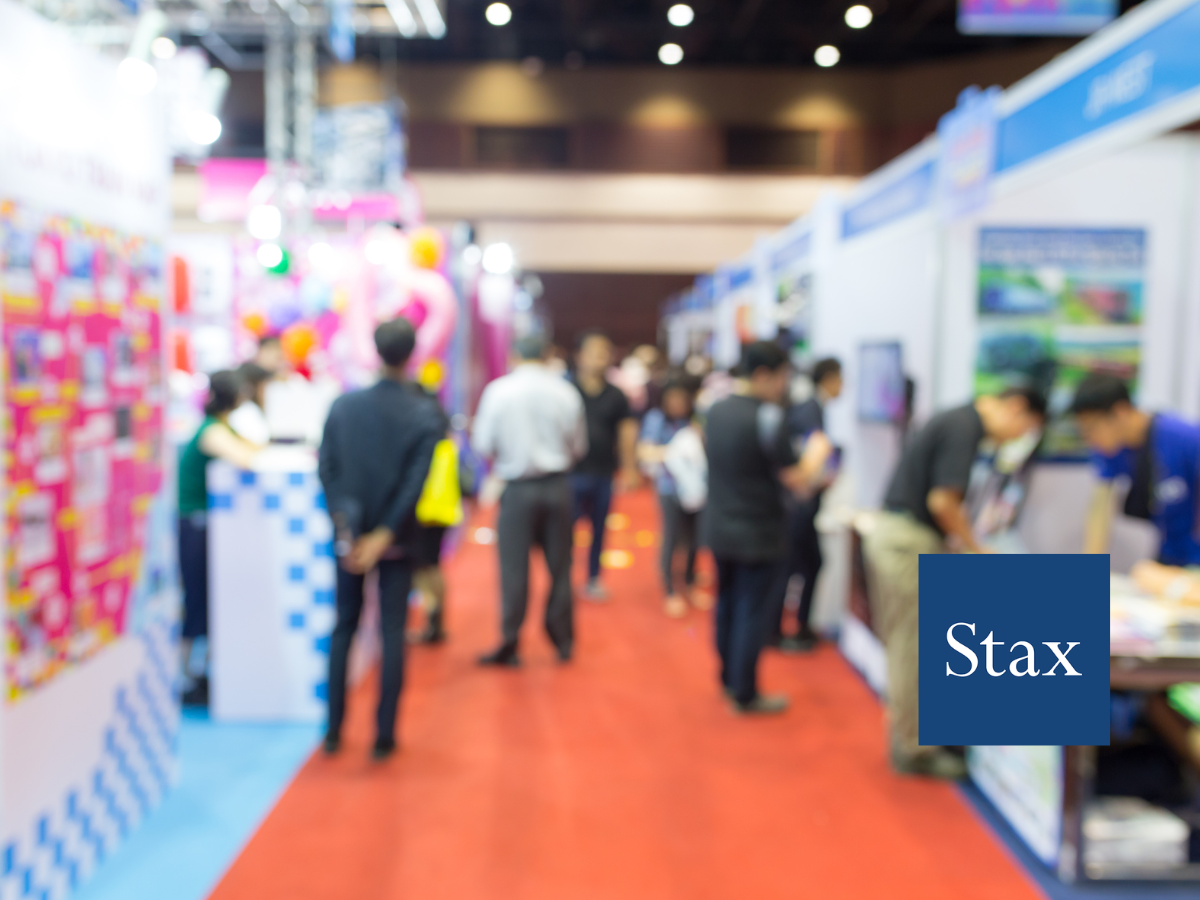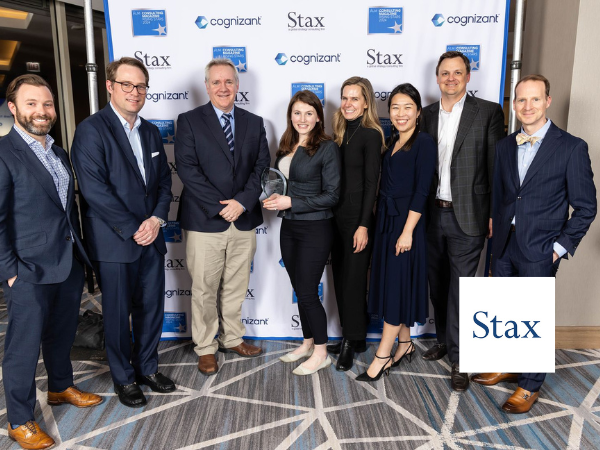Reinventing Live: Looking Beyond the Horizon
Reinventing Live: Looking Beyond the Horizon
This article was published by Exhibition News in June 2021.
In his co-written book, ‘Re-inventing live, The Always-On Future of Events’, Denzil Rankine quotes an old saying: “Pioneers take the arrows; settlers take the land”. This intrigued me given the current state of our industry – who will be the pioneers and settlers in this brave new post-pandemic world? Surely it is best to wait for the bold to experiment, to watch from the sidelines as they fail and then clean up by refining and stealing their best ideas.
To do so runs the risk of being laggards, of not grabbing the opportunities that are undoubtedly unfolding and presenting themselves. Increasingly I have been picking up on a growing sense of optimism and excitement. A sense that we are about to enter a period of unprecedented growth, launches, re-invention and a time when we finally grab the potential of digital. Ordinarily sensible, levelheaded individuals are predicting a repeat of the ‘roaring twenties’ underpinned by pent up demand and consumer spending – I ask Denzil whether he agrees:
“I think there is a split – shows are coming back and starting to happen again so I think there will be some organisers that will default to what they did in the past – others will take this opportunity to do something different. The problem is we didn’t really have a ‘burning platform’, we talk (in the book) about the problems in the industry, but which were not directly reflected in financial results. The event industry was doing okay. It wasn’t doing fantastically but because of the power of face to face, and the uniqueness, it was possible to keep going and make a lot of people a lot of money without the need to make significant changes.”
For me one of the most stark and depressing points Denzil makes in the book is that only 25% of our shows record a positive Net Promoter Score (NPS) and an average score of -17%. One can argue the validity of NPS but as a crude measurement of customer satisfaction it is very sobering:
“That’s the whole point, because you’ve got a captive audience, you have ‘got to be at the annual meeting’. People may grumble about it but ultimately they will attend. That’s because of the mini monopolistic characteristics that major events can create. This allowed some of the less good practices to continue unchecked and ensured organisers still made money. The Covid-19 crisis has really exposed all of this and the more enlightened organisers are now starting to think very carefully and clearly about what it is they’re going to do when events come back. The big point is that customers will definitely be expecting a better experience – and specifically a better business experience.”
The book goes into this in great detail, making the case for change and not holding back on the assertion that the events industry has been complacent and relatively slow in taking up the new opportunities offered by technology and digital. Denzil talks about moving from a “monochrome world to a technicolour experience with full surround sound”. I ask him to explain that so that we can understand what that transition looks like:
“Well, I think the other way of looking at it is drawing parallels with the early days of TV when at the beginning it was a radio presenter with a mic and a camera pointed at him or her. So, the point we’re trying to make here is that events have not evolved enough and there is an opportunity to move to a more dynamic ‘technicolour’ world. The event becomes far more than just a tradeshow and evolves to become the nucleus of a far broader set of ways to connect a community and to enable participants to meet their business needs in different formats and different ways.”
Not festivals but great experiences
Lots of people have talked about ‘experiential’ – let’s turn our events into festivals or mimic elements of a rock concert – I am not sure that is the right approach. We are talking about the use of technology, focusing on delivering on business needs with great Customer Experience (CX) and User Experience (UX). The full surround sound is using digital tools and compelling content to continue the business experience beyond the three-day trade show”
While I appreciate what Denzil is saying this has echoes of something many organisers have tried to do for the last 10 years or so. I ask him why he thinks we have made so little progress:
“I think the question is what’s your starting point. If your start point is you’ve been brought up in an exhibition organising business and you’re fantastic at operations or you’re fantastic at sales, then this new world is really quite scary. If you come at it from outside the events industry you have a different perspective. My experience is that most people from outside events are staggered when they’re told what the profits can be made – and some are better innovators. We discuss FreightWaves and Money 2020 in the book, these guys have come from outside the events industry, and they’ve approached events better by understanding the fundamentals of their community, using technology and not being driven by legacy ‘event’ thinking.”
Denzil then speaks about PTTOW! – an invite-only community for creative and influential CEOs, CMOs and icons from all 70 major industries. Its ‘icon members’ include Dalai Lama, Michael Bloomberg, Tony Hawk, David Guetta, Sarah Jessica-Parker and Quincy Jones.
“They didn’t start from wanting to create an events business, that didn’t even know that’s what they were doing. They simply created meetings in the community where people wanted to get together. When the COVID crisis came along, they just said ‘okay well we can’t have that big event that everyone loves going to each year so we’re going to find other ways to connect people’. They started putting things online and they’d have a musical interlude, they’d have a meditation, all sorts of innovative things that they knew would work for their community. The first time I went to one of these meetings I was just blown away to see that they had created a very special sense of community that I had not seen before. It was extraordinary.
“PTTOW! approach things from a ‘community’ point of view, not with an events mindset and now they’re figuring out what it means to be an events business. The events industry has always had entrepreneurial startups – the difference now is that there are other platforms and ways of monetizing communities – there’s the whole world of digital opening possibilities beyond a three day event.”
So does Denzil think that this entrepreneurial approach can be sustained within a larger organization or is it restricted to smaller more fleet footed businesses?
“It depends on the nature of the organization. Look at Dreamforce, a runaway success, and organised by a massive corporate (Salesforce). Of course the business model is different from for-profit organisers and they approach the event from a ‘community first’ perspective. Major organisers focus on the need to achieve traditional margins, but I think some see the value of entrepreneurialism in this new climate and recognise the returns that will provide.
25% digital revenue and improved NPS
“The margin we can get on digital is high and of course valuations for digital businesses can greatly exceed those of event businesses. As is always the case in days of pioneers, we will see some pain in the early stages with digital revenues. The industry is starting at only 2% of digital revenues and we need to get to 25%. That requires some rapid learning for the industry. There will inevitably be mistakes, and there will be some initial compromises on margin but I’m pretty confident we’ll get to a point where margins will be as high as they were before, and I’m really hopeful that the net promoter scores that you mentioned, will move north, that’s because we’re actually going to be satisfying our customers in a better way.”
I ask Denzil to explain what this will look like in practical terms:
“So you will have the annual celebration which used to be called a trade show, most of the preparation for which will be digital. The meeting will take place and the attendees will be connected via a range of digital tools and engagement techniques creating what we call ‘data exhaust’ which gives us the opportunity to find out more about who they are and what they need, creating a virtuous circle of engagements. Throughout the rest of the year, we’re going to have specific touch points. So, if you’re a big construction show for example the year will be punctuated with other themed weeks featuring the content that the community wants to hear about. I sincerely hope that no organiser will go to a contractor again and ask for a sign that says ‘See you next year’ – we very nearly did a graphic in the book with a collage of all of these.”
Denzil discusses event technology at great length in the book as that will clearly be a key enabler and there is a current debate about data ownership. Should organisers be concerned about tech providers becoming too powerful?
“My guess is that organisers won’t tolerate giving away ownership of data and we also have GDPR to consider. It is hard to see how it plays out, but I am struggling at the moment to see how an event tech company can successfully become a competitor to its customers.
Organisers are unlikely to build the technology themselves given their lack of scale and the fact that the largest organiser in the world has much less than 10% market share. Secondly, If you look at the way event technology is going to evolve I can see massive consolidation as at present there are more than 300 providers of virtual platforms alone. There will be a number of winners and they will be able to invest more and provide better solutions than any single organiser can. You are better off outsourcing and working in partnership with tech providers, but you also have to work through the data ownership question carefully.”
There are examples of organisers who have invested in their own technology, Easyfairs being one, but they also work with external vendors. The decision will also depend to a certain extent upon your business model, the extent to which you’re centralised or federated. Overall, I would say third party is a good way to go unless you’ve got a specific skill set or circumstance that’s going to allow you to do it on your own.”
Smaller, more sophisticated and productive events…
We then move on to the nature of the events that will flourish in this new world. The book talks about smaller, more sophisticated, and productive events. So I ask Denzil if this represents the death knell for that big, general blockbuster trade show?
“I don’t think we’re necessarily predicting that major events will fall over. A lot of will come down to the way the brands are managed – if you manage them in a greedy way you may encounter headwinds. Obviously post COVID we’re going to see the mega-shows become smaller events with fewer exhibitors and smaller stands. We probably will see visitor numbers holding up quite well and I think we will see more specialisation. But as we move to the knowledge economy even if you are downsizing in the traditional sense, we can improve quality and engagement, so it doesn’t really matter as it will still be a great business with new revenue streams.
So, yes, I think we’re not going to see growth in square metres which is bad if you’re a contractor and you’ve got to keep your forklift trucks busy but I think we’re going to see improved engagement levels and tighter more focused audiences.”
I ask what changes organisations need to make to benefit from these changes. Given that the new world will require new skills how does Denzil think this will impact structures and the workforce?
“Obviously, it’s been very tough for people across the events industry and many have found themselves without work. I think that we’re going to find that there will be a lot of change in people in the industry. Some CEOs have said that they expect half of their people to be completely different (post-COVID) with old world thinkers being replaced with people who can see beyond selling square feet or meters.
“We’re going to see a big change. In the book I mention something that Bob Gray, formerly CFO at UBM and now Partner at EagleTree, said to me many years ago – if Proctor and Gamble can make a product manager for Pampers seem sexy we sure as hell should be able to do so for an Event Director on Tissue World!”
Finally, I asked Denzil if he felt that it is viable for an organiser in the future to only run trade shows or will they need to be fully digitally enabled?
“I think it will be a rarity for an organiser that has no sizable digital footprint to thrive- although there will always be an exception somewhere.”
Another fascinating insight into the events industry concludes. Denzil suggests in the book that some of the content may seem “scary” although my reaction was that while any major disruption can be unnerving it is also hugely exciting. Our industry has been through recessions, ash clouds, terrorist attacks and countless other disruptions so if I know anything about the event industry it’s that we are up for a challenge!
Read More
All Rights Reserved | Stax LLC | Powered by Flypaper | Privacy Policy






